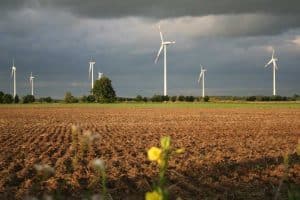Thinking sustainably about energy and agriculture
What a year we’ve had. Rarely has so much, in such a short time, changed in the energy sector, particularly for the hydrogen industry. For starters, we have witnessed the arrival of a national hydrogen strategy, council and office, a European Green Deal, a European Clean Hydrogen Alliance, RED II and the IPCEI Hydrogen, as well as revisions to the German EEG.
Some of these, like the national strategy and hydrogen office, have been a long, arduous time in the making. Others, such as RED II, caused quite an uproar in some circles, with DWV boss Werner Diwald calling it an outright “slap in the face.” And then there are those things which came out of the blue, such as Germany coordinating a hydrogen-focused IPCEI.
All in all, though, we can say our years of effort have paid off. Of course not on all levels, but for the most part, the statement holds true. The German government no longer caters to the auto industry’s every whim. Although BMW, Daimler and VW still have a powerful influence on politicians, German and European lawmakers recently introduced emissions reduction targets that would have been unthinkable in 2019.
Renewable capacities have been increased, although projected targets are a long way from meeting the 1.5 °C global warming limit. Even the world’s 2 °C goal is doubtful. Still, 2020 was the year in which hydrogen became widely recognized as the missing link in energy systems integration.
The sum of recently past events – the diesel scandal, fine dust debates, climate protests, Fridays4Future, natural disasters and the stark plunge in our insect population – has left a mark, not just on society but also on politics. The pressure to act is immense. Something even diehard reactionaries should realize by now. All things considered, 2020 was a good year for those intent on transforming our energy system.
Because: We finally have a launchpad – albeit a small one. Revamping our energy supply will take more than a few baby steps in the right direction. We need many more policies, and fast. So far, government and business leaders have paid little more than lip service to the cause. But we need to push forward, and we need to do it now.
At the same time, we need to bring those into the fold who are still hesitating for one reason or another. Many decision-makers cling stubbornly to old habits and technology. It’s not enough to put a few thousand electric cars on the road and then wonder why people are bashing fossil fuel ICEs. Neither does forcing a switch from oil to gas on the heating market make much sense, considering today’s gas boilers require fossil sources for another 20 years. Home fuel cells are also far from optimal, since they, too, must be fired by natural or liquified petroleum gas. What we need as soon as possible are hydrogen grids and hydrogen-powered fuel cell systems.
Looking at the big picture, we can see the European Union’s democratic decision-making process and chorus of diverging opinions can nonetheless lead to a broad consensus. While arriving at a decision may not always be easy, the underlying social discourse is vital for motivating topic-related personal research to voice an informed, educated opinion. We are all obligated to participate in that exchange. There is still much to discuss. For example:
Do we really want business as usual, now that so many things are changing? Do we want to keep insisting on economic growth, although there is overwhelming evidence that this will only erase the technological progress we have achieved?
… Read more in the latest H2-International e-Journal


























0 Comments